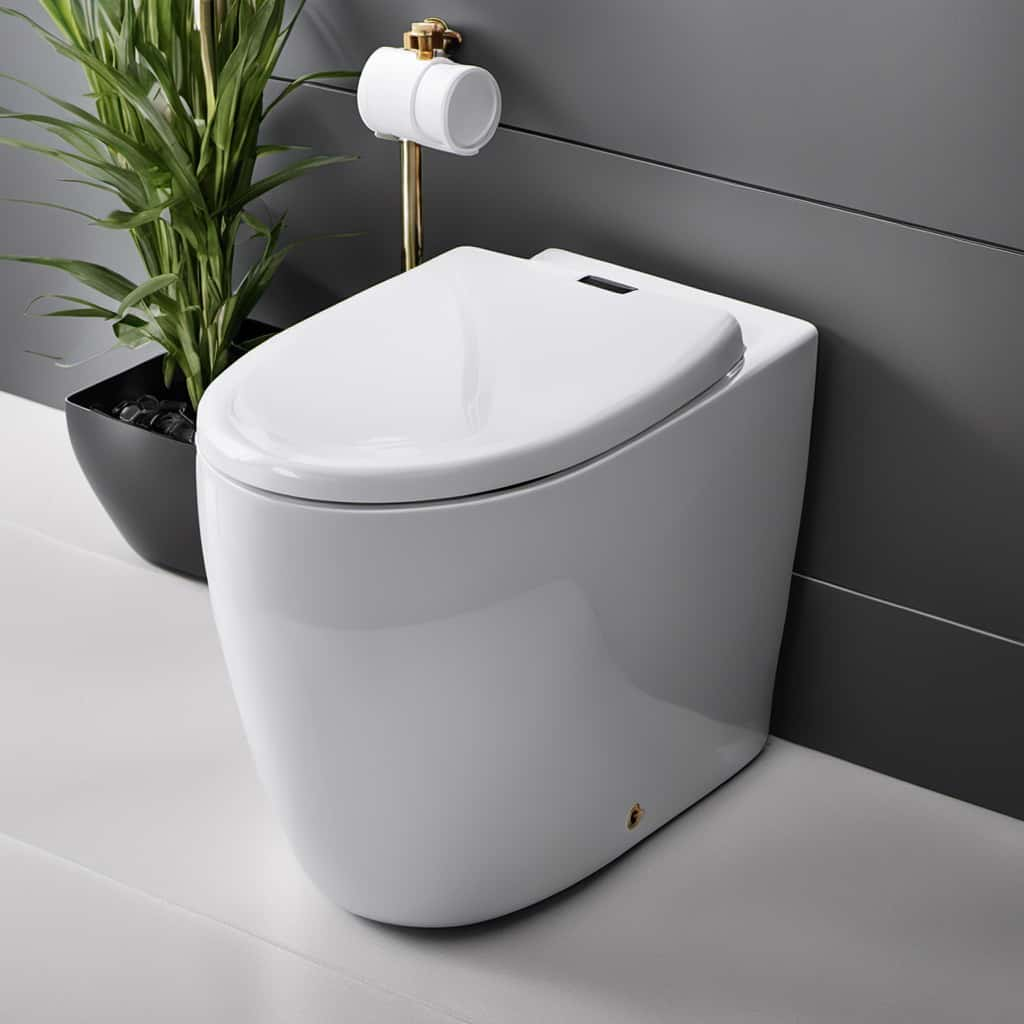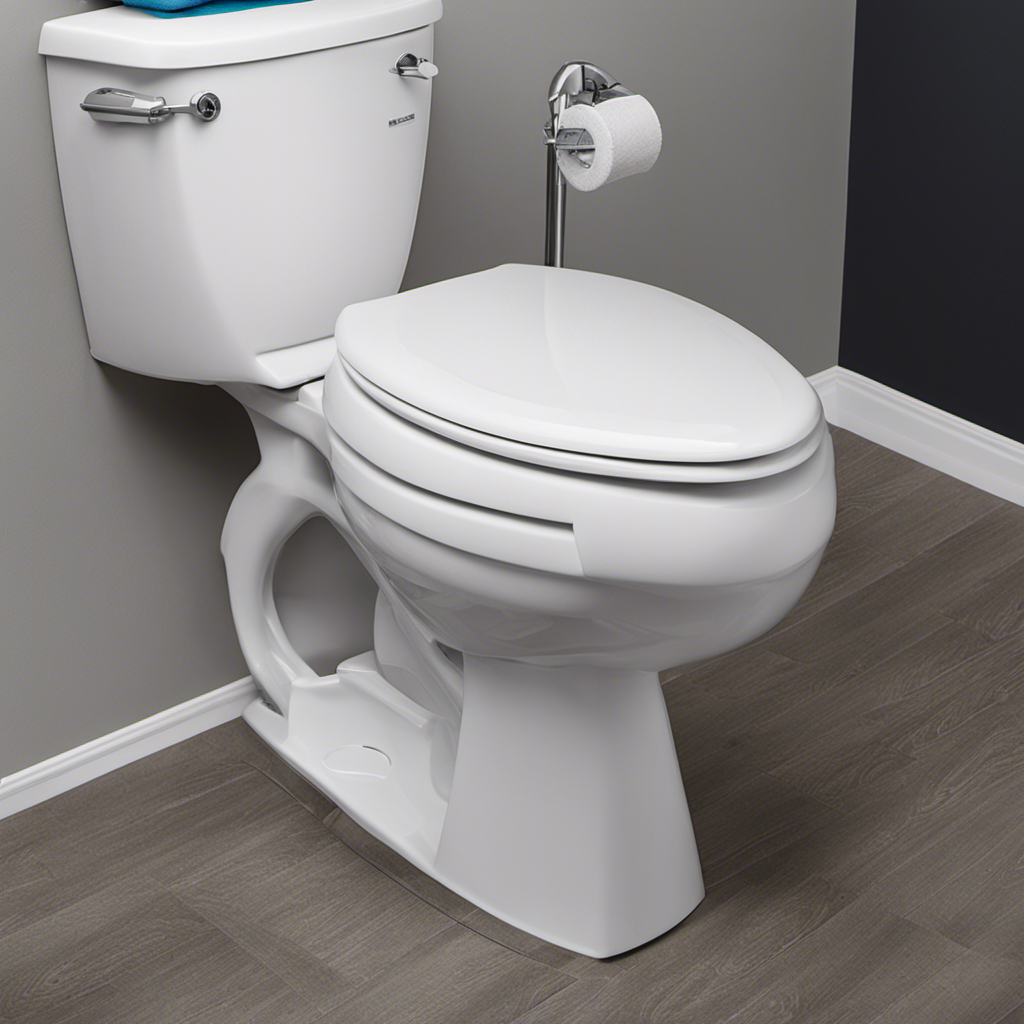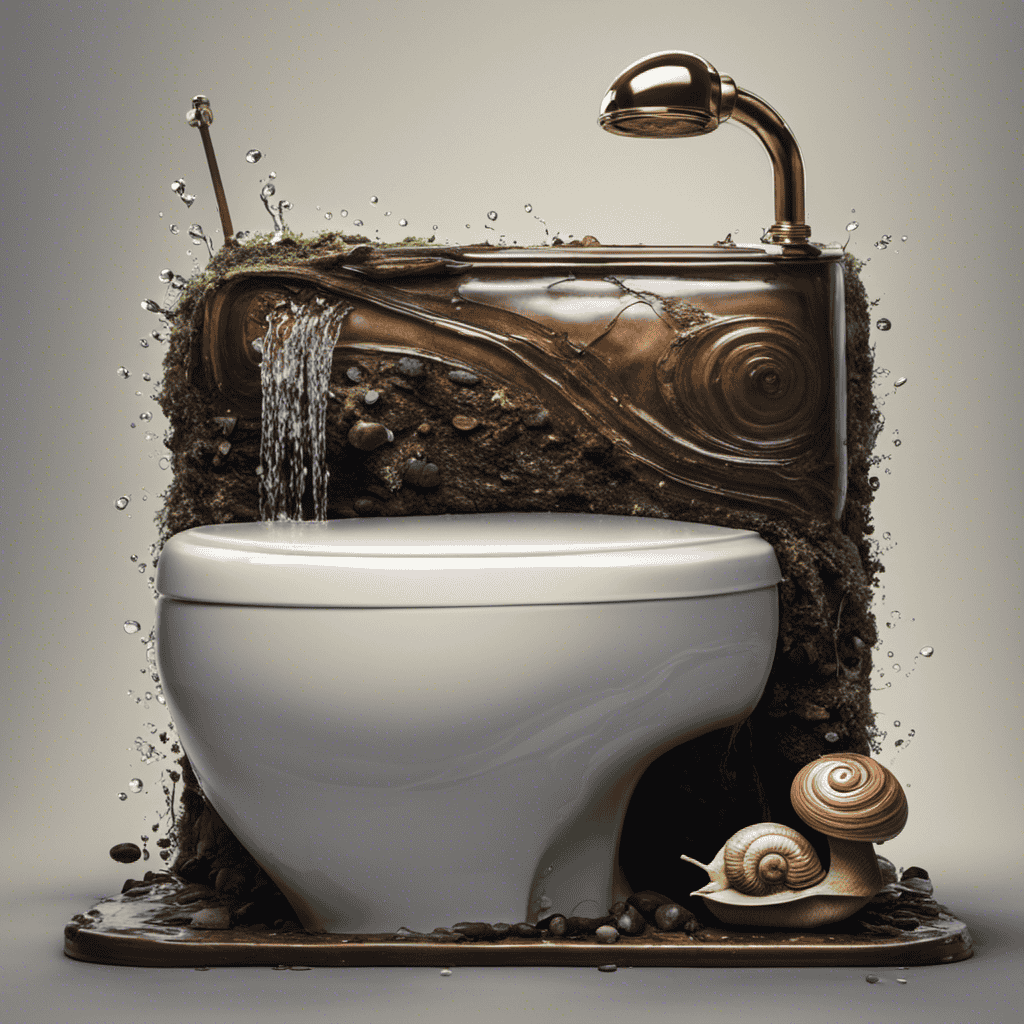We’ve all heard the saying, ‘Out of sight, out of mind.’ But when it comes to flushing wipes down the toilet, this adage couldn’t be more misleading. In fact, it’s a habit that can have serious consequences for our plumbing systems, the environment, and even our own health.
In this article, we’ll delve into the scientific and analytical reasons why it’s bad to flush wipes down the toilet, providing you with the knowledge you need to make more informed choices.
Key Takeaways
- Flushing wipes down the toilet can lead to clogging and blockages in the plumbing system, requiring professional intervention and expensive repairs.
- Non-biodegradable wipes can cause significant damage to the plumbing system, leading to pipe corrosion and the need for expensive repairs or replacements.
- Flushing wipes has a significant environmental impact, causing water pollution, posing a threat to marine life, and contributing to the plastic waste crisis.
- Flushing wipes can overload the municipal sewage system, increasing the risk of sewage backups, contaminating water sources, and diverting resources from essential services.
Clogging and Blockages
We frequently encounter clogging and blockages in our plumbing system when wipes are flushed down the toilet. This practice can lead to potential health hazards and incur significant costs for repairs.
When wipes are flushed, they don’t disintegrate like toilet paper, but instead, they accumulate and create obstructions. These blockages can restrict the flow of wastewater, causing backups and overflows. The wipes can get tangled with other debris, such as hair and grease, further exacerbating the problem.
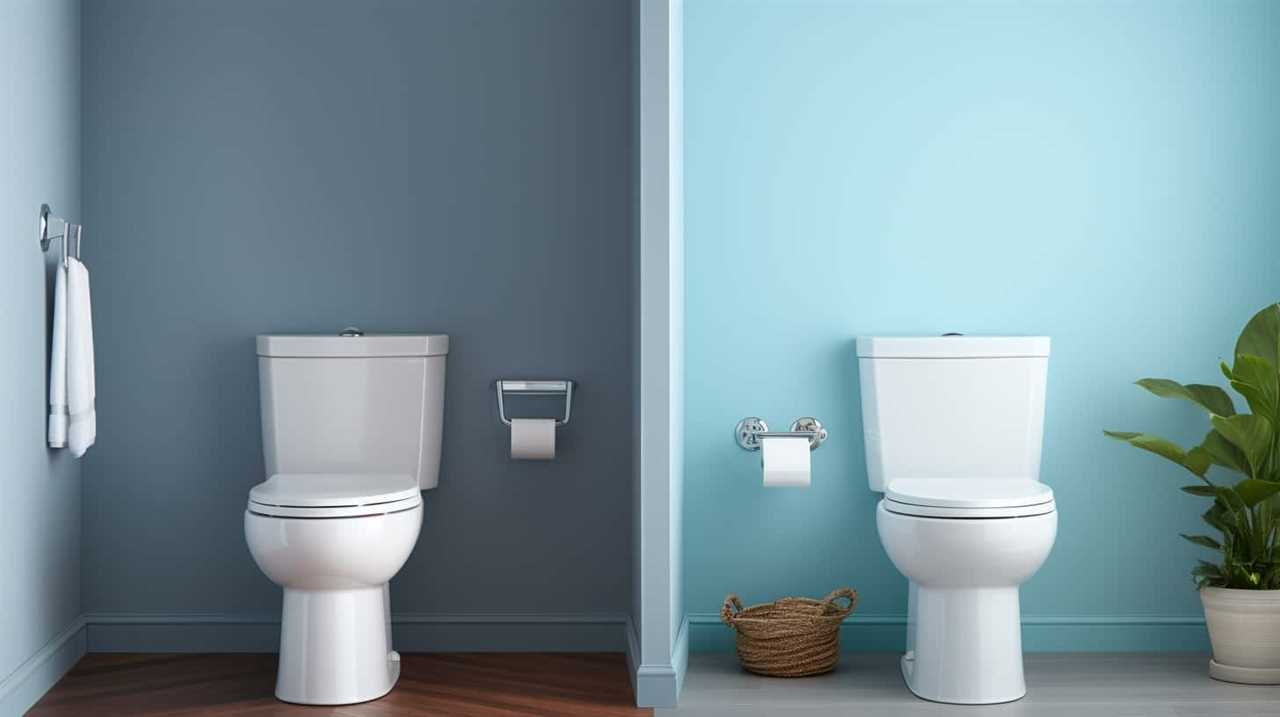
To resolve these issues, professional intervention is often required, leading to expensive plumbing repairs. Moreover, the presence of clogs and blockages can also compromise the integrity of the plumbing system, leading to even more damage and costly repairs.
As we delve into the next section, we’ll explore the extensive damage that flushing wipes can cause to our plumbing system.
Damage to Plumbing System
Continuing our exploration of the consequences of flushing wipes down the toilet, we encounter significant damage to our plumbing system. This seemingly harmless act can lead to a multitude of problems that can be both costly and hazardous to our health.
Here are three potential outcomes when wipes are flushed:
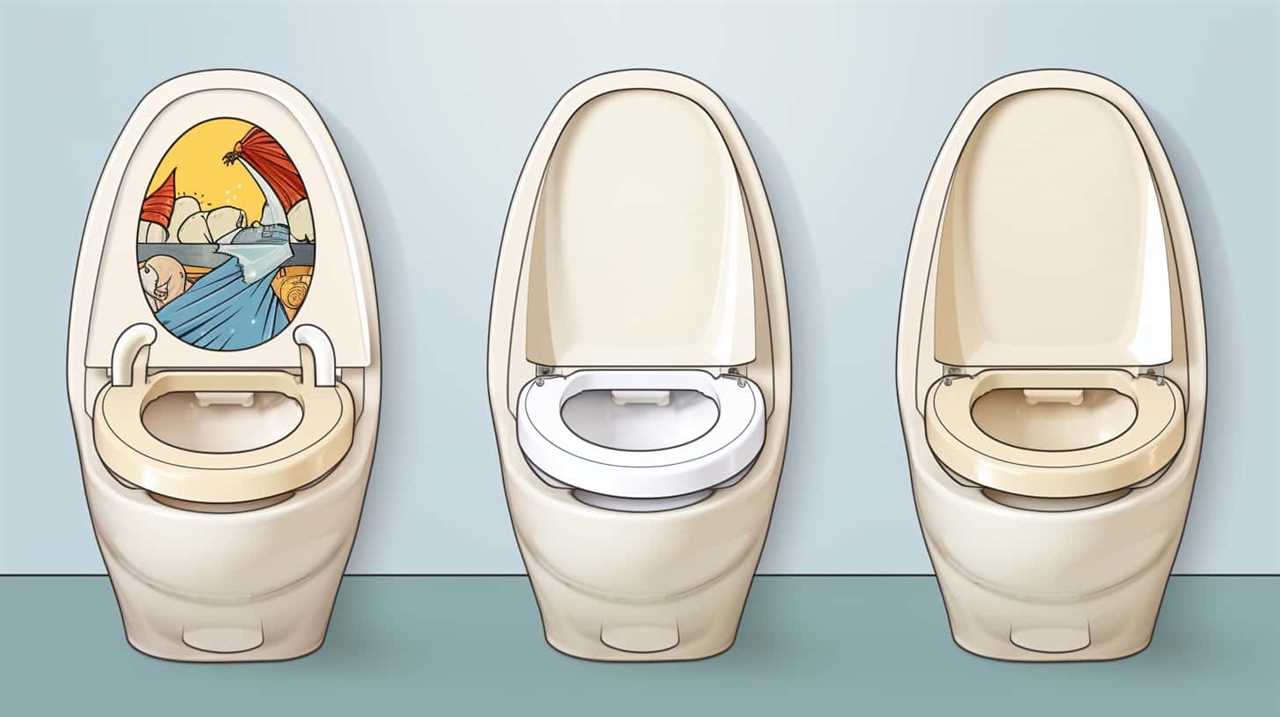
- Clogging and blockages: Wipes aren’t designed to break down like toilet paper, causing them to accumulate and create blockages in the pipes. This can result in sewage backups and overflows, leading to unsanitary conditions and potential health hazards.
- Pipe damage: The non-biodegradable nature of wipes can cause them to get tangled and caught in the plumbing system. Over time, this can lead to pipe corrosion and damage, requiring expensive repairs and replacements.
- Sewage system stress: Flushing wipes adds unnecessary strain on the sewage system, as it has to work harder to process these non-flushable items. This increased stress can lead to system failures and costly repairs.
Damaging our plumbing system not only poses potential health hazards but also results in costly repairs. However, the detrimental effects of flushing wipes don’t end here; they also have a significant environmental impact.
Environmental Impact
Flushing wipes down the toilet not only causes damage to our plumbing system but also has a significant environmental impact. When wipes are flushed, they can end up in our waterways, leading to water pollution. These wipes aren’t biodegradable like toilet paper, so they can persist in the environment for a long time. As a result, they can accumulate in our rivers, lakes, and oceans, posing a threat to marine life.
The impact on marine life is particularly concerning. Marine animals can mistake these wipes for food, leading to ingestion and potentially fatal consequences. Additionally, the accumulation of wipes can disrupt the natural balance of ecosystems, affecting the health and diversity of marine species.
It is crucial to understand the environmental implications of flushing wipes down the toilet. By properly disposing of wipes in the trash, we can minimize water pollution and protect marine life from unnecessary harm.
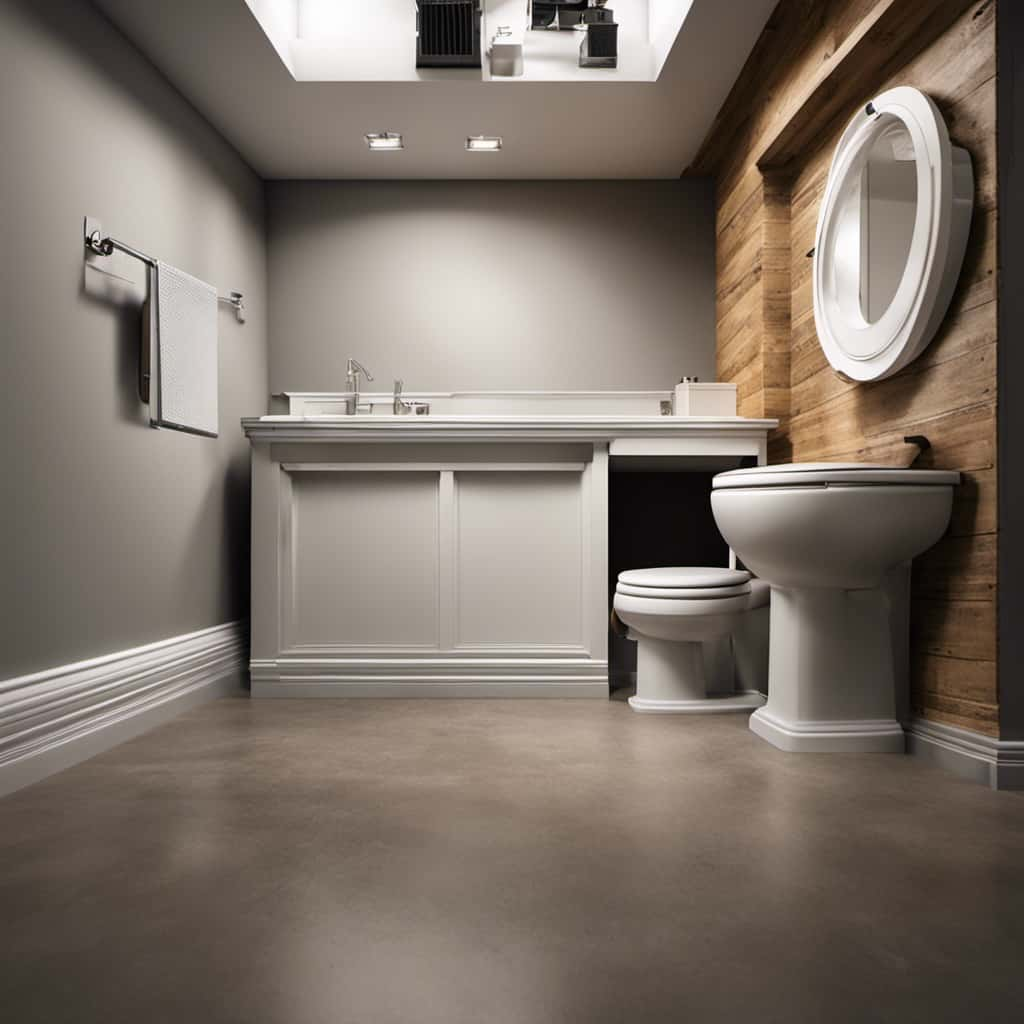
Municipal Sewage System Overload
As we continue to explore the negative consequences of flushing wipes down the toilet, it’s important to consider the issue of municipal sewage system overload. This occurs when the sewage system becomes overwhelmed with a large volume of non-biodegradable wipes, leading to a range of problems.
Here are three key reasons why municipal sewage system overload is a serious concern:
- Public health risks: When the sewage system becomes overloaded, there’s an increased risk of sewage backups and overflows. This can lead to the release of untreated wastewater into the environment, contaminating water sources and posing a threat to public health.
- Increased maintenance costs: Dealing with the aftermath of sewage system overload requires extensive repairs and maintenance. Clearing clogged pipes, unclogging pumps, and repairing damaged infrastructure all come at a significant cost to municipalities.
- Strain on resources: Municipalities are responsible for managing and maintaining the sewage system. When the system becomes overloaded, it puts a strain on already limited resources, diverting funds and manpower away from other essential services.
Safer Alternatives
Once we understand the risks of municipal sewage system overload, we can explore safer alternatives to flushing wipes down the toilet. It is important to consider eco-friendly options for proper disposal of wipes to minimize the negative impact on the environment. Here are some alternatives to flushing wipes:
| Eco-friendly Options | Proper Disposal | Benefits |
|---|---|---|
| Biodegradable Wipes | Dispose in the trash | Break down naturally over time |
| Cloth Wipes | Wash and reuse | Reduce waste and save money |
| Toilet Paper | Flush in small quantities | Designed for easy breakdown |
Frequently Asked Questions
Can I Flush Biodegradable Wipes Down the Toilet?
Yes, we can flush biodegradable wipes down the toilet, but it is still not recommended due to the potential environmental impact. Even though they break down, they can still clog pipes and contribute to sewage system problems.
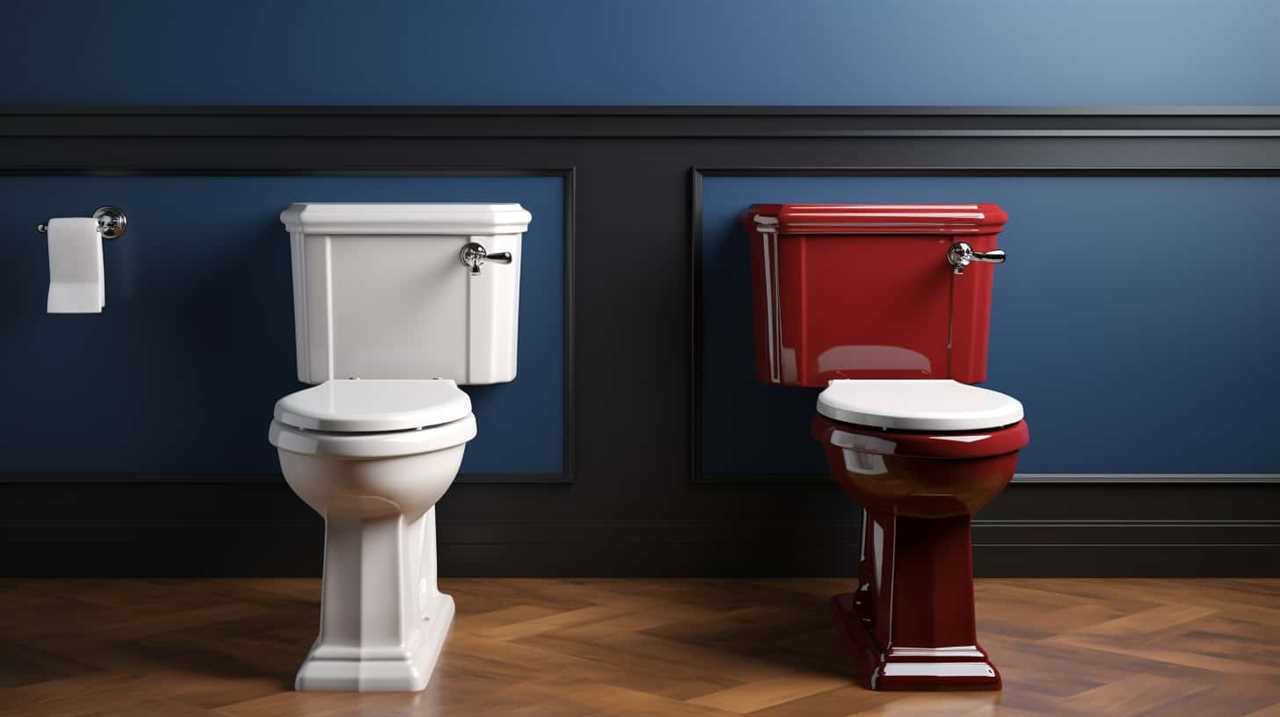
Are There Any Wipes That Are Safe to Flush?
There are no flushable wipes that are truly safe to flush. Despite claims, they can still cause clogs and damage to plumbing systems. Alternative disposal methods, such as throwing them in the trash, are recommended.
What Should I Do if My Toilet Gets Clogged by Flushing Wipes?
If our toilet gets clogged from flushing wipes, we should avoid DIY unclogging methods. It’s like trying to solve a complex equation without proper knowledge. Instead, we should call an emergency plumber for expert assistance.
How Long Does It Take for Wipes to Break Down in the Sewage System?
When it comes to the environmental impact of flushing wipes down the toilet, it’s important to consider how long it takes for them to break down in the sewage system. Additionally, we should explore alternative options to minimize this issue.
Are There Any Regulations or Laws Against Flushing Wipes Down the Toilet?
There are regulations in place that discourage flushing wipes down the toilet due to their negative environmental impact. These regulations aim to prevent clogging in sewage systems and protect aquatic ecosystems from the harmful effects of non-biodegradable materials.
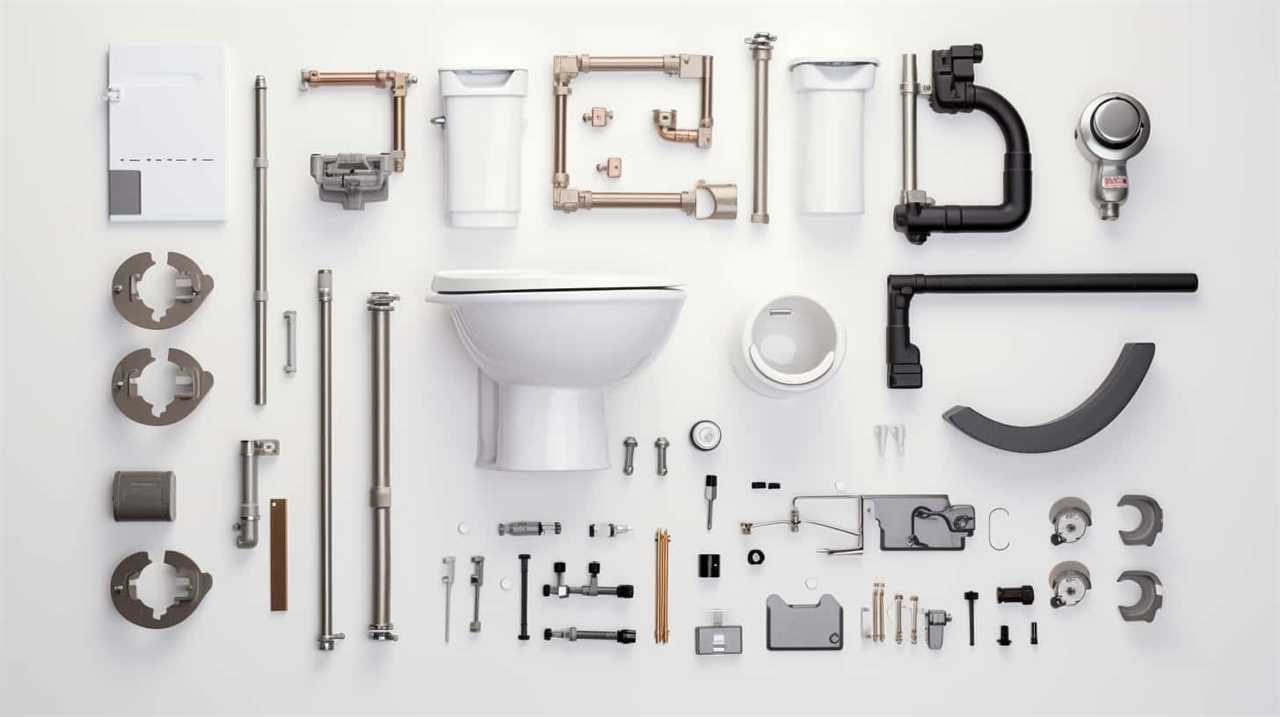
Conclusion
In conclusion, flushing wipes down the toilet can have detrimental consequences. Not only do they cause clogging and blockages in the plumbing system, resulting in costly repairs, but they also have a severe environmental impact.
These non-biodegradable wipes can end up in oceans and rivers, harming marine life and ecosystems. Additionally, the overload caused by wipes in municipal sewage systems can lead to sewage backups and environmental contamination.
Let’s remember to dispose of wipes properly and opt for safer alternatives to protect our plumbing and environment.

